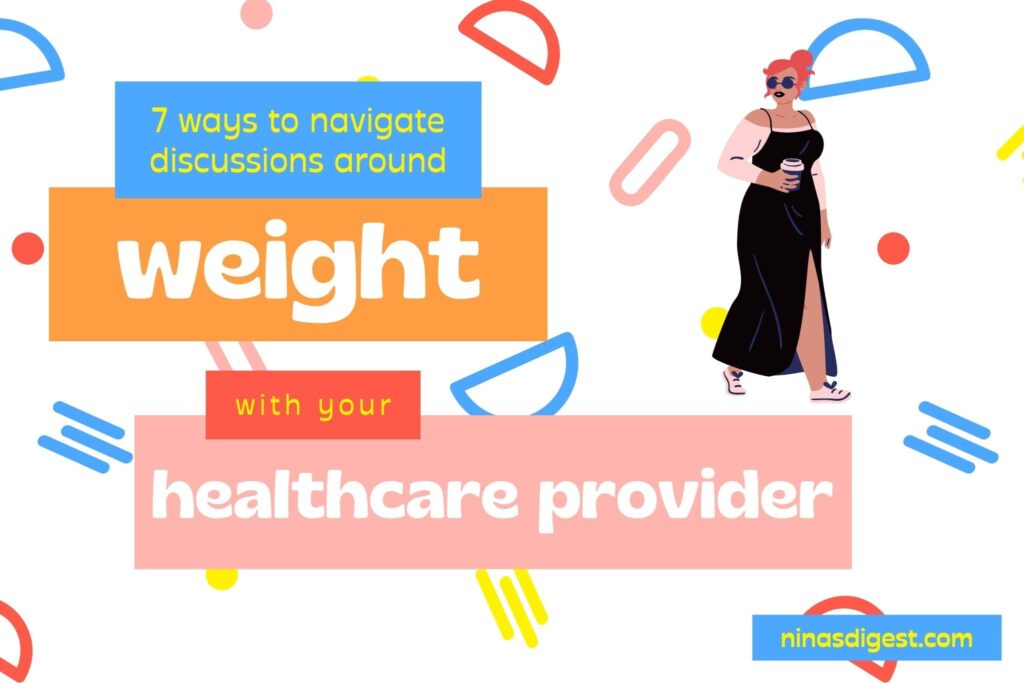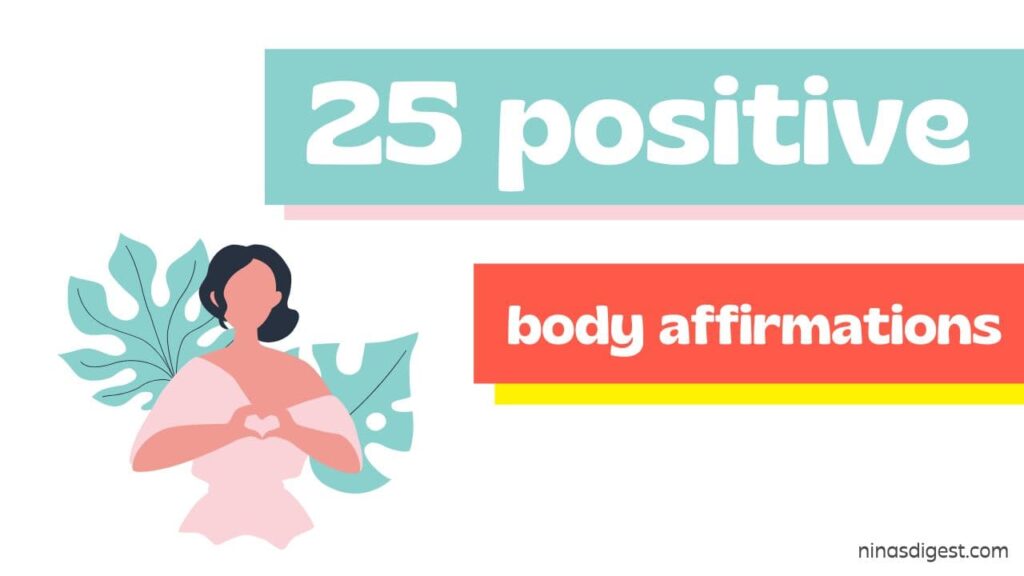If you are someone who has experienced fatphobia or struggled with body image in the past, visiting your doctor can be stressful. This is especially true when you don’t have direct access to HAES doctors and other HAES-aligned healthcare practitioners. The good news is that you can go to your visit armed with knowledge and a plan to prepare yourself for conversations that involve weight.
Table of Contents
Why Weight?
Healthcare providers focus on weight because, unfortunately, our healthcare system is still extremely weight-centric. Providers have limited time with patients, and weight is one of the easiest, quickest measurements to take. While we know that weight is not a good indicator of health, it is a measurement that will always be taken.

7 Ways to Navigate Discussions Around Weight with Your Healthcare Provider (and maybe even find HAES Doctors)
1. Tap Into Your Supports
If you have a therapist, social worker, or counselor who has a grasp on the Health at Every Size (HAES) philosophy, request that they give your doctor’s office a call before your appointment. It can be relieving to know that you have someone advocating for you before you even step into the building for your appointment.
2. Choose to Opt Out of Getting Weighed
You are allowed to let the person asking you to step on the scale know that you don’t feel comfortable with being weighed. It might be helpful to let your practitioner know that you have adopted a HAES philosophy. Or you can share that even hearing your body weight can bring up negative thoughts for you personally.
Keep it as short as you wish; this can sound as simple as “I don’t want to be weighed, but thank you.”
3. Turn Around on the Scale
At times, a provider will need to take your weight (i.e. when determining a safe, effective dosage of a medication). In these instances, let the practitioner know that you plan to stand on the scale backwards. Share that you do not wish for them to read the number out loud. This way, you don’t have to focus needlessly on a number, and your doctors have all of the information they need to formulate your prescription.
4. Request Specific Care Unrelated to Weight – Whether or Not You Have Access to a HAES Doctors
A provider might suggest that you should lose weight in order to address a condition or to simply improve your health. Respectfully ask about the advice that they would give to thin folks when they present with the same condition. This may encourage your doctor to offer up some behavior modifications that will successfully address your issue. And we know that losing weight isn’t a behavior!
For example, if you are experiencing pain and tightness in your lower back, weight loss may be among the suggested solutions. Ask your doctor, “When people in smaller bodies come to you with this issue, what can they do to feel better?” The answer may include advice like working with a physical therapist, stretching regularly, and taking leisurely walks.
5. Explain Honestly Why You Don’t Want to Discuss Your Weight
Taking patients’ weight is as commonplace for most healthcare providers as taking blood pressure measurements and recording heights. While it might feel uncomfortable to object to discussing something that has been so normalized, remember that you are well within your right to express your wishes to your providers.
Leveling with the practitioner and letting them know that you have struggled with disordered eating, body dysmorphia, or simply insecurity surrounding weight and body size can be a great way to take the conversation off the table.
Remember, though, that this is absolutely NEVER necessary if you do not feel comfortable sharing. Some patients may find it helpful, but some of us are more private. You might simply not feel that you are in a safe space to open up. No matter what, your wishes are still valid and they can come with as much or as little explanation as you choose.
6. Redirect the Conversation to Focus on Behaviors
If your healthcare provider has made a weight-related suggestion, remind yourself that weight is not a behavior. Decades of research have left us without an understanding of how to successfully shrink the human body. It’s why we have a thriving, multi-billion dollar diet industry.
If, for example, your physician might suggest that you lose weight to reduce your blood pressure. Work together to dig a little deeper. Because let’s be honest – giving out the weight loss suggestion is a bit lazy. Ask about measurable behaviors that can be modified to achieve the same result. Can you adjust your salt intake? Engage in some enjoyable movement? Prioritize sleep and stress reduction?
These are behaviors. Weight, weight loss, and weight gain will never be behaviors because they are not directly within our control. This can take some time to convince yourself of, because most of us grew up hearing VERY different information. But the sooner you can decide that your weight is not your business, the freer your mind will be to focus on the factors that you can actually modity.
7. Seek Out Weight Neutral Care from HAES Doctors and other Providers
If you aren’t receiving the compassionate care that you deserve, it might be time to start looking elsewhere. This might be easier said than done; it can be incredibly frustrating to find a provider who you both feel safe with and who is currently accepting new patients. Throw in the mess that is insurance coverage and you might want to give up.
If you take anything away from this blog post, I hope it is the fact that you deserve quality care that makes you feel seen, heard, and truly cared for. It might take time to find a provider that checks those boxes. But I encourage you to seek it out because, remember, you DESERVE it.
A Few Helpful Resources
The Association for Size Diversity and Health (ASDAH) offers a helpful resource to connect folks to healthcare providers, fitness professionals, educators and advocates who are HAES-informed. Finding HAES doctors IS possible!
Christy Harrison, registered dietitian and author of the fantastic book Anti-Diet, has compiled a list of physicians, recovery resources, registered dietitians, and therapists who are appropriate for those in need of weight-inclusive care.
Psychology Today does not yet allow users to filter for providers who approach counseling from a weight-inclusive, HAES perspective. A work-around for this is searching for therapists and dietitians who have experience with eating disorders. Search for “HAES” and “weight-inclusive” when sifting through profiles – this can help you narrow down your search.
One last thought related to this topic – it is always best to request an introductory phone call or zoom session with a new provider, even if they advertise weight inclusivity. Have a couple of questions on hand such as “How do you incorporate Health at Every Size principles into your practice?” and “What do you tell your clients who are struggling with weight-related issues?” – these questions can help you weed out practitioners who may not truly be practicing from a HAES perspective.

If you feel like you could use more support surrounding this topic, please do not hesitate to reach out. Contact me here to find out how I might be able to help you navigate these tricky situations.


